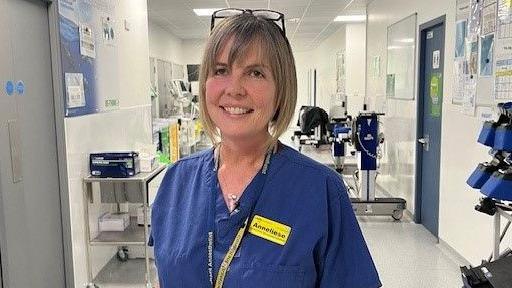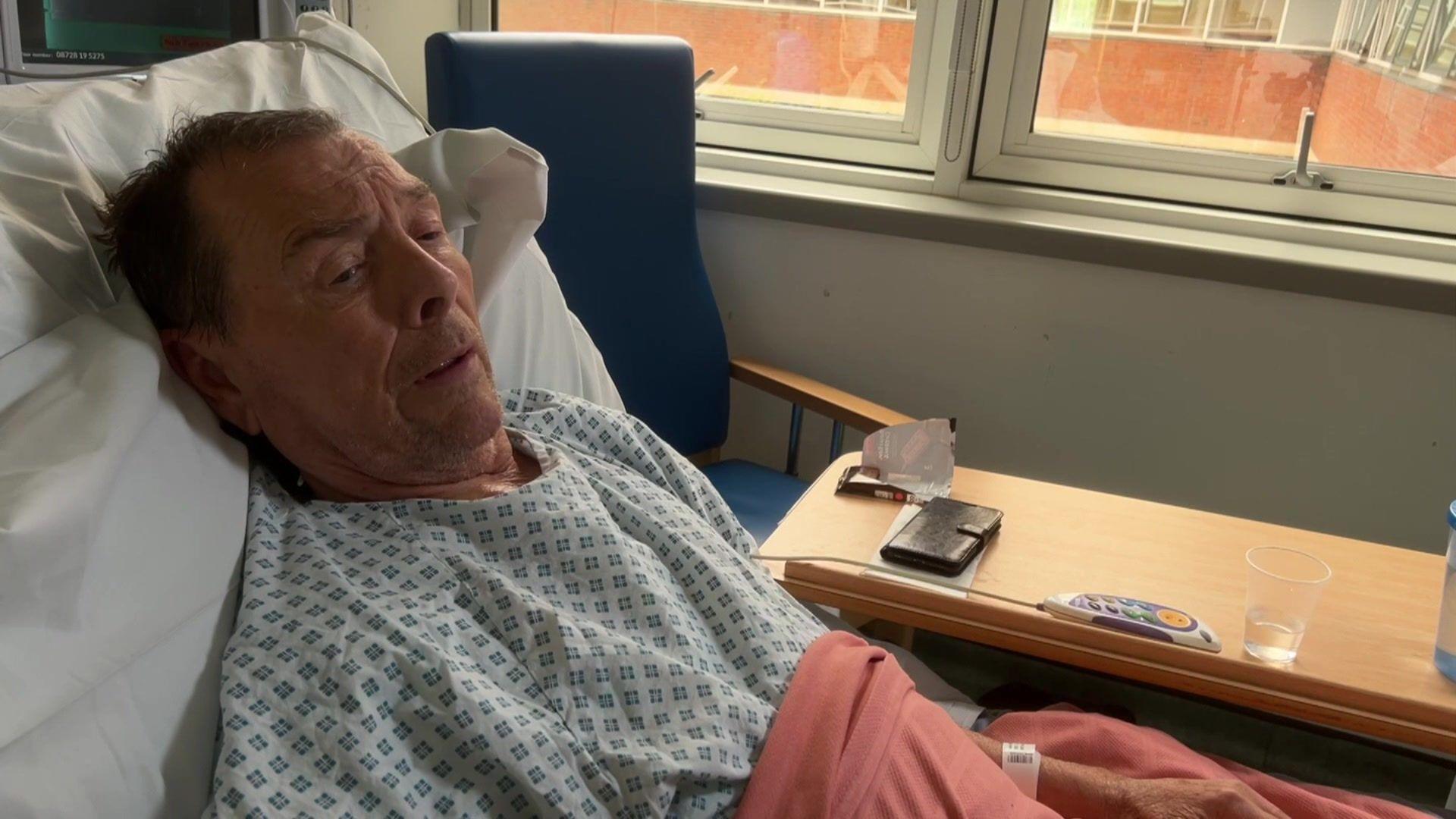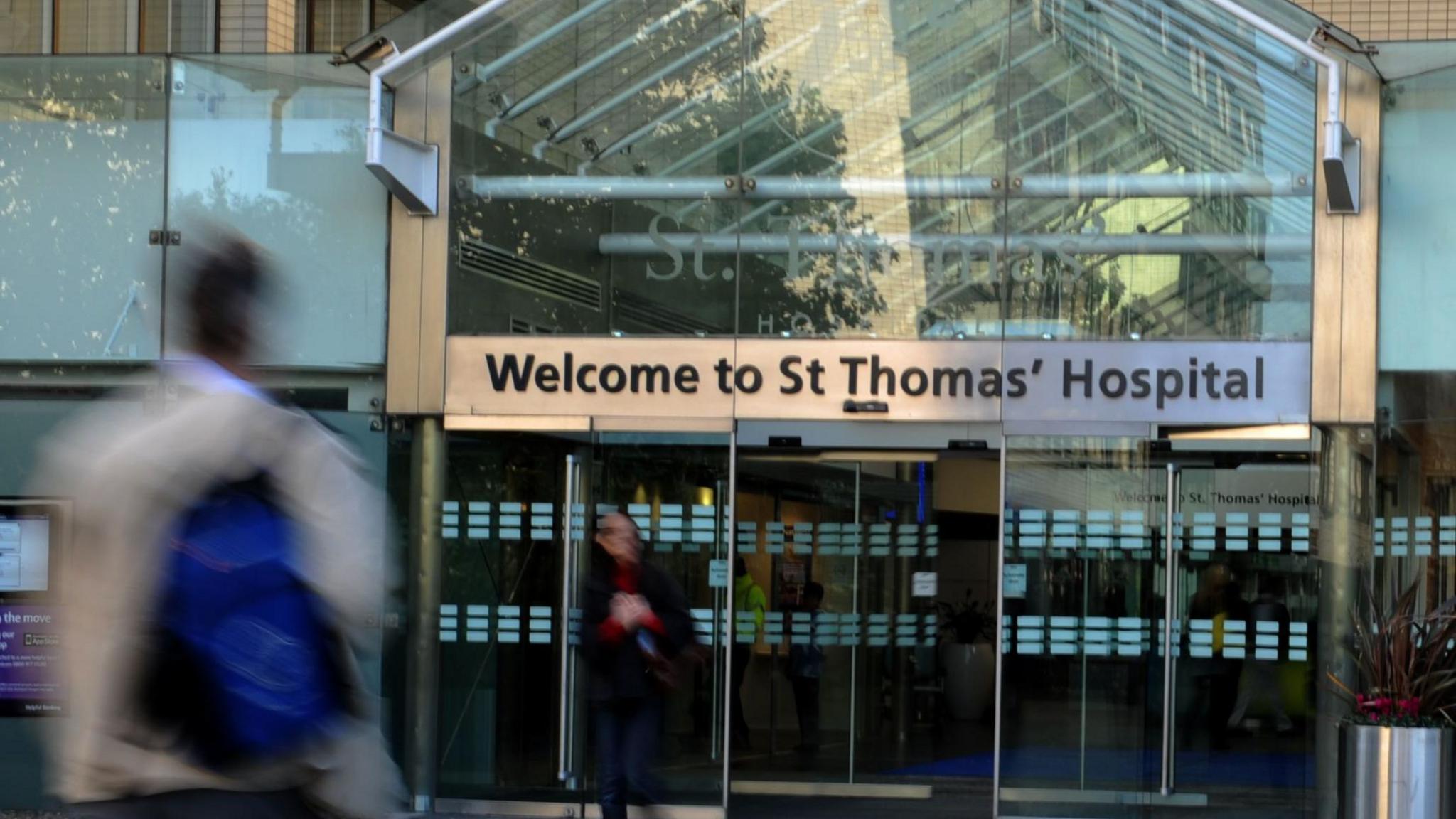Hospitals grapple with aftermath of cyber attack

Dr Anneliese Rigby says some processes are taking "much, much longer"
- Published
London hospitals are still grappling with the aftermath of a cyber attack that has led to many hours of extra work for their staff.
A critical incident was declared on 4 June after the ransomware attack targeted the services provided by pathology firm Synnovis.
Services including blood transfusions have been severely disrupted at healthcare sites including Guy's and St Thomas' Hospital and King's College Hospital (KCH).
It means some processes are taking "much, much longer," said Dr Anneliese Rigby, a consultant anaesthetist at KCH.
She told BBC London that blood tests that once would have taken an hour could now take up to six hours, as the systems needed to process them are down.
"We have no automatic system at all," Dr Rigby said.
"So what the labs are having to do is receive the blood sample, manually process that, which is a long, time-consuming process requiring a lot of staff which we don't have so we're having to get extra people to help with that."
O-type blood donors needed after London cyber-attack
- Published10 June 2024
Critical incident over London hospitals' cyber-attack
- Published4 June 2024
'Russian criminals' behind hospitals cyber attack
- Published5 June 2024
Dr Rigby said all the results needed to be checked twice to account for human error, and when results are available they have to be typed into the system "line by line" by two people.
She praised the way staff have responded to the cyber attack.

Geoffrey Bowry had to be transferred for a heart operation
KCH has had to cancel some of its operations and is working at about 70% capacity, with three of 17 operating theatres remaining shut.
Some patients requiring urgent operations had to be transferred to other facilities when the cyber attack happened last week.
Geoffrey Bowry, 76, is among 25 heart patients to be transferred to St George's Hospital in Tooting, where services were not affected.
He urgently needed a quadruple bypass after suffering a heart attack.
"The thing that worries you most is if you're going to have a bigger attack," he told BBC London.
"Luckily enough, I was in good care so I didn't have to worry."
Dr Rajan Sharma, the cardiac clinical director at St George's Hospital, said hospitals and ambulance crews have been co-ordinating to ensure critical patients are seen at sites not affected by the cyber attack.
"These operations need to be done immediately from presentation," he said.
Staff at St George's have plans in place to carry on helping hospitals affected by the cyber attack until mid-June, when they will reassess.
Jacqueline Totterdell, the hospital's chief executive, said they had been able to carry on with their own services despite the additional workload, due to support from neighbouring healthcare providers.

St Thomas' was one of the hospitals directly affected by the ransomware attack
An NHS spokesperson said: “NHS staff are working around the clock to minimise the significant disruption to patient care following the ransomware cyber attack and we are sorry to all those who have been affected.
"Pathology services are integral to a wide range of treatments and we know that a number of operations and appointments have been cancelled due to this attack."
The spokesperson said the NHS was working to "fully assess" the disruption from the attack.
“In the meantime, our advice to patients remains that if you have not been contacted, please do continue to attend your appointments."
Listen to the best of BBC Radio London on Sounds and follow BBC London on Facebook, external, X, external and Instagram, external. Send your story ideas to hello.bbclondon@bbc.co.uk, external